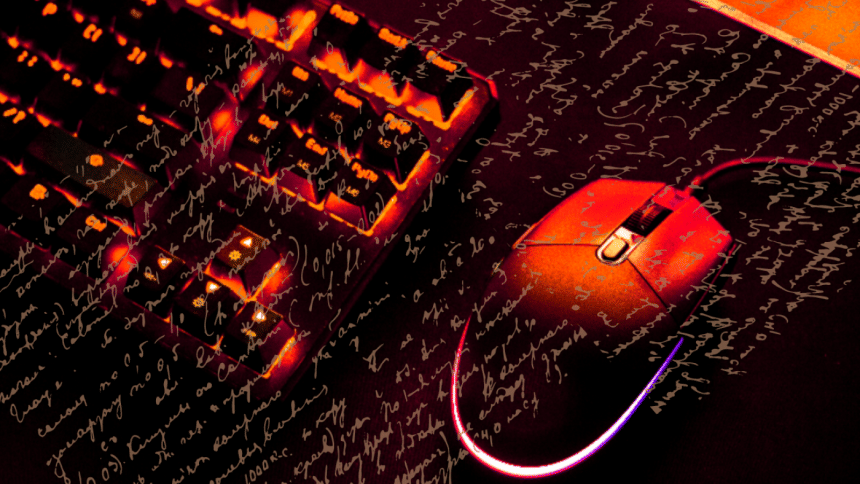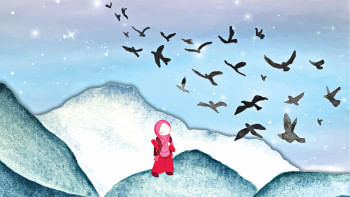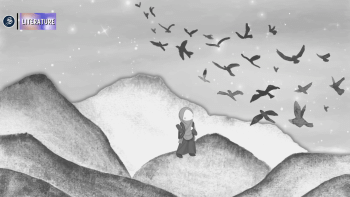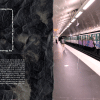So, ChatGPT can write? Ahem!

The correlation between writing and technology is as old as writing, for writing IS technology. Technological advances such as papyrus, the printing press, the mechanical pencil, the fountain pen, and the typewriter have complemented writing. Writing and technology are not exclusive. Despite being a technology, writing remains manual and human. Writing is labour, in which the body and the brain participate. Likewise, composition professional Donald Murray claims that writing is an intellectual activity carried out in an emotional environment. Writing, then, presupposes both cognition and affect that humans embody. Technologies that underpin writing embrace these dimensions of writing. ChatGPT (Generative Pre-Trained Transformers) does not. Therefore, a conflict between writing and technology has ensued worldwide, when OpenAI released ChatGPT this past November.
While writing and technology are not exclusive, ChatGPT is. It's a predatory technology that threatens to subvert writing. It doesn't ease writing as all technologies do; it, instead, writes itself. And it promises to write everything. Writers, by contrast, are limited by their interests and expertise. A writer doesn't–and can't–write everything. Writers are genre sticklers. Ernest Hemingway, for example, had nothing to do with science fiction and philosophy. Steven Pinker has nothing to do with novels and poetry. No writer is ambidextrous. ChatGPT is. As such, it re-defines writing built on the foundational flaw that humans can write anything, anytime. And because ChatGPT is a model (i.e., Large Language Model, LLM) based on algorithms, it's science. Disregarding it on the surface seems to be doltish. Nevertheless, Noam Chomsky, Ian Roberts, and Jeffrey Watumull regard ChatGPT as "faux science" in their pitch, "The False Promise of ChatGPT," in The New York Times.
Writers are genre sticklers. Ernest Hemingway, for example, had nothing to do with science fiction and philosophy. Steven Pinker has nothing to do with novels and poetry. No writer is ambidextrous. ChatGPT is. As such, it re-defines writing built on the foundational flaw that humans can write anything, anytime.
It is indeed so given that the science of writing has a neurobiological dimension that ChatGPT disregards. Writing is an adult engagement. Research in neuroscience establishes that the human brain is not adult enough until the second decade of our life, when it completes neural wiring. Even when the brain is developed, different activities are undertaken by either of the brain's two hemispheres–maths for the left hemisphere, for example. Gabrielle Rico claims in Writing the Natural Way (1983) that writing is a unique activity that must engage both the hemispheres of the human brain. Writing that endures combines both the critical intelligence of the left hemisphere and the creative excellence of the right hemisphere. Influential composition professional Peter Elbow also claims that excellent writing utilises a synergy between first-order thinking (i.e., intuitive, creative) and second-order thinking (conscious, directed, controlled). Because these attributes of writing are neurobiologically determined and specific to adults, everyone is not meant to produce compact and compelling prose. With ChatGPT, anyone who writes a prompt, writes. This is zany!
That's because writing presupposes pre-writing. It is one of the most critical phases of writing (the other two are: writing and rewriting), which consumes about 85 percent of our time and energy in a writing task, as composition professional Donald Murray claims. Pre-writing involves researching, brainstorming, consulting sources, and sequencing the various stages of writing. The physical act of writing flows from a frame of mind, which swings between procrastination and creative tensions during pre-writing. Skipping pre-writing warrants re-defining writing, because pre-writing situates writing in the cognitive and emotional meshwork that humans are endowed with. Pre-writing is the soul of writing. The version of writing that ChatGPT spits out emerges independent of it. It writes instantly, uninterrupted. It is unfamiliar with the "wise passiveness" that William Wordsworth urges in his poem, "Expostulation and Reply". Over his desk, likewise, Franz Kafka had one word, "Wait." That's what all writers do. ChatGPT doesn't! So, it doesn't write. It, instead, manufactures writing.
As a consequence, ChatGPT is a scourge to have around. It denigrates the discipline of composition studies, for it's a clear case of disciplinary trespassing. Composition studies is an independent discipline with intellectual and pedagogical agendas. Its knowledge base is expansive, as it heavily draws from the rhetorical traditions of ancient Greece. Composition professionals are specialised scholars. They know the patois of their guild. They know that the best-kept secret for the discipline doesn't lie in cracking some engineering codes. Writing, rather, is problem-solving through a sense of judgement mediated by language. Statisticising writing as an informed guesswork–as ChatGPT does–is insular and romantic. The architects of ChatGPT are criminally innocent about the options and restrictions of writing. ChatGPT as such is a wrong thing coming from the wrong people exploited by the wrong people. It's an example of technological turpitude, which we all are victims of these days. ChatGPT threatens to re-define writing, which is the work of "a noiseless, patient spider," as Walt Whitman implicitly claims in his titular poem. ChatGPT begins the dark dawn of writing with serious ethical and intellectual consequences in the days ahead.
Matthew Kirschenbaum, in his pitch, "Prepare for the Textpocalypse" in The Atlantic, apprehends that we might quickly find ourselves facing a textpocalypse, where machine-written language becomes the norm and human-written prose the exception. Because machines surpass humans in speed and productivity, we may soon be swept away by a tsunami of stilted and trite text. Consequently, language degenerates. Thinking diminishes. Civic discourse coarsens. Aesthetics cowers to conveniences. Human agency and intent recede. What emerges under such a circumstance is not writing whatsoever. It's, instead, a synthetic patchwork that ChatGPT does. Writers are pack rats, who know, understand, and contemplate "the best that has been thought and said," as Matthew Arnold suggests in Culture and Anarchy (1869). And authentic writers write with soul, as Rachel Toor claims in her essay "Writing with Soul," in the Chronicle of Higher Education. ChatGPT can't write with soul, for it doesn't have sentience. When, then, ChatGPT goes mainstream, and machine-generated prose metastasizes further, we will hardly believe anything we would read on or off line. That portends an ethical and a human crisis.
Despite these essential shortcomings, how does ChatGPT gain ground in writing? Writing is not glib scripting. Writing is breathing life into words generating taut prose that informs, inspires, and enlightens. While the basic tool of a writer's trade is words, a writer is not a mere wordsmith. Writers are deep thinkers, extensive readers, and compulsive editors of their writing. These attributes that underpin writing are not natural. These are habitual. Most people do not know about the habits writers cultivate. Neither do they want to form the habits themselves, because it requires an unwavering commitment to investing time and energy to master the craft of writing. As such, our academic or intellectual development is often not commensurate with the development of writing skill. Our vulnerability with writing continues to compound. The architects of ChatGPT used this fault line to come up with the kitschy attempt to take the sting out of writing. They can't do so, because writing is "back-breaking, mind-breaking work," as Mark Edmundson claims in Why Write? (Bloomsbury USA, 2016). ChatGPT is vulnerability and ignorance commodified. If we would collectively resist a vaccine invented by a group of historians to deal with a fatal virus causing a pandemic, why won't we resist a cure-all writing app from a group of technology boffins from Silicon Valley? There's no correlation between expertise and invention here. The connection, therefore, between ChatGPT and writing is apocryphal.
So, it's a sobering time for writers and writing professionals. Written words continue to mean less and less these days, for we're becoming a culture of images. Because we can show and see almost everything, we no longer have to use words to know about the world. An author is no longer an authority, because she is not rare and exceptional. On the internet, everyone is a scribe. Consequently, the gap between writing and typing is already significantly reduced. With ChatGPT around, the gap between writing and typing diminishes further. As it turns out, everyone is a writer, and everything is writing. That's lunatic, toxic thinking. ChatGPT as such unleashes unqualified violence against writing and writers. Writers and writing professionals are artists, who are pushed, or who push themselves, to a time of apprehension and uncertainty. Toni Morrison avers in her essay, "No Place for Self-Pity, No Room for Fear," in The Nation, that artists must not choose to remain silent in times of dread. She further claims, "There is no time for despair, no place for self-pity, no need for silence, no room for fear. We speak, we write, we do language. That is how civilizations heal." Are we speaking and writing enough contra ChatGPT to heal our civilisation that it threatens to disrupt?
I wish we did! Technology is so widespread these days that we always see what technology has done to our civilisation. Hardly do we think about what technology has undone already. Physicist Robert Oppenheimer used to lament that he had blood on his hands because of his involvement with the Manhattan Project, leading to the development of the atom bomb. The world has never been the same ever since. What the atom bomb is to the world is ChatGPT to writing. Our relationship with writing will never again be the same. Trust me. I'm a composition professional. I know what I am talking about.
Mohammad Shamsuzzaman is an associate professor at the Department of English and Modern Languages, North South University, Bangladesh.

 For all latest news, follow The Daily Star's Google News channel.
For all latest news, follow The Daily Star's Google News channel. 










Comments